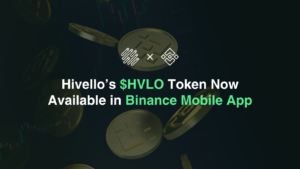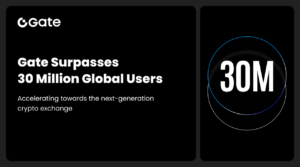TransitNet Launches Title Verification Tools To Transform The Crypto Sphere

LOS ANGELES, USA, 3 August 2021 – Billions of dollars worth of crypto has been stolen over the last fews years. Crypto’s status as a bearer asset means that anybody who is able to get their hands on someone else’s crypto essentially becomes the owner of it. This is how crypto has always functioned.
However, TransitNet is developing a new solution that will allow investors to turn their crypto from a bearer asset to a registered asset and make the whole crypto sphere more secure and more attractive to institutional investment.
TransitNet is the solution that the crypto industry needs to move to the next level. TransitNet offers crypto investors the ability to change their crypto from a bearer asset to a registered asset and will consist of a suite of different tools that will assist with title verification for cryptographic assets. TransitNet can be utilized by custodians, auditors, fund administrators, insurers, crypto exchanges and most significantly institutional investors.
According to data presented by Finaria, $1.9 billion in crypto was stolen in 2020. Despite these massive figures, this actually constitutes a significant fall from 2019 where the total amount of crypto stolen was worth $4.5 billion. At its highest, the total market capitalization of crypto in 2019 was less than $350 billion meaning that more than 10% of the total market cap was stolen that year. Even though that proportion has decreased in the last couple of years, it is impossible to dismiss the massive presence of theft in the market. Fraud was the leading method used by criminals to obtain these funds followed by theft using ransomware.
The amount of criminality within crypto has likely proven a significant stumbling block to mass adoption by institutional investors. This is clearly seen in statements like those of JP Morgan’s CEO Jamie Dimon who, in 2018, dismissed Bitcoin as “a fraud”. For crypto to see major institutional investments, it has to shed its association with criminality. At the very least, crypto needs to find a way to make itself more secure and more capable of being regulated.
Of course, these are well-known pitfalls of the crypto industry. 99% of cryptocurrencies are bearer assets. This means that the holder of the asset is presumed to be the owner. Whoever is in possession of crypto can trade, spend or sell it however they please. This feature strongly contributes to the amount of theft in crypto. If a thief can get access to another person’s crypto they have the ability to trade it as if it was their own. This is the opposite of how a bank functions which stores funds as registered assets. The funds in a bank are registered to a specific person and cannot be transferred without their explicit approval.
The first of TransitNet’s title verification tools is the Asset Collision Identifier (ACI). This tool lets service providers check for the collision of crypto wallets. In other words, it will identify wallet addresses that may be claimed by multiple managers and then help ensure that specific assets are not claimed by more than one fund. After the release of the ACI demonstrated the industry need for verification tools, TransitNet is now developing a title registry. The forthcoming release of which, will expand the ability for TransitNet users to register their cryptographic assets.
TransitNet has just closed a seed round on WeFunder worth $2 million. Investment from major players in the crypto investment industry was previously secured during an angel investment round. However, TransitNet’s latest investment round was to give access to the project to crypto investors across the world rather than the elite crypto investment funds. The names that invested back in 2018 include such renowned firms as BKCM, ALPHABIT and Kenetic Capital, which is evidence of how significant a project like this could be. The ability for crypto to gain the same legitimacy as assets stored in the bank could be a genuine game changer.
About TransitNet
Transit net provides the tools to assist service providers with title verification for cryptographic assets. Launched in 2020, the company seeks to provide institutional investors a more secure and transparent blockchain by creating a registry of cryptography assets.







